ERP vs MRP will come to your mind when choosing a technology solution to optimize your resources. However, the fundamental difference between ERP and MRP is that MRP is a stand-alone system for enterprise production planning. On the other hand, ERP can select and improve many business functions such as accounting, planning, manufacturing, supply chain, and customer management. In other words, ERP reduces operational costs and manages risks as it streamlines various business processes to increase your overall business performance.
Thus, this article will analyze these two concepts and help you decide the right solution for your business.
What is MRP?
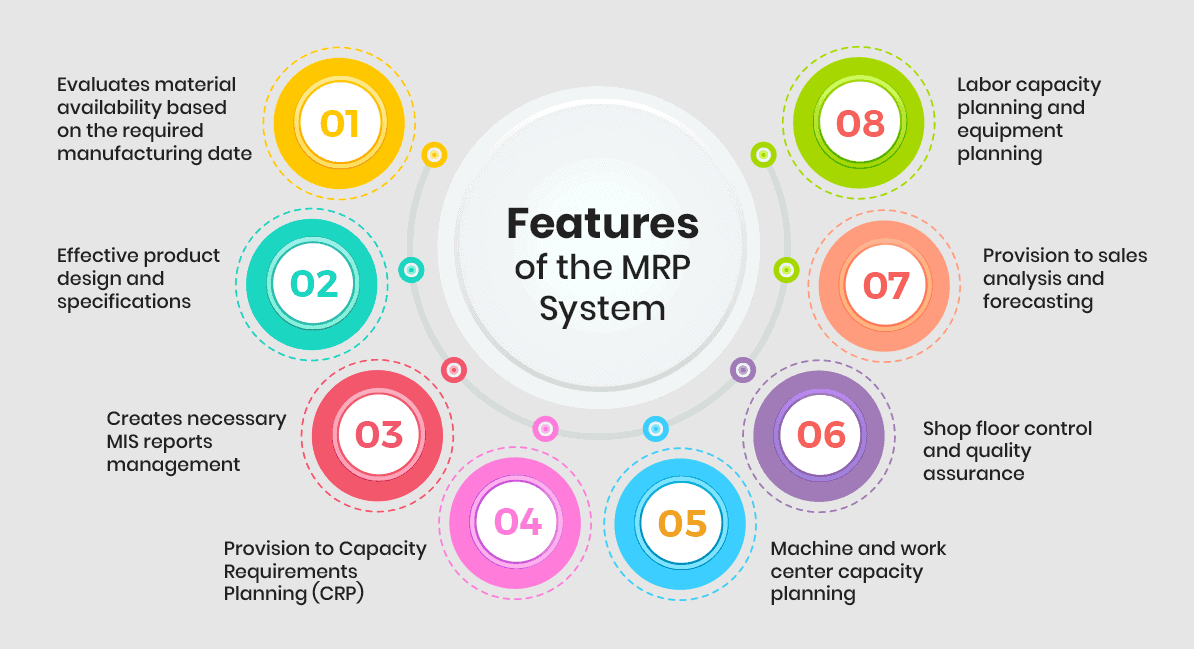
What is MRP in manufacturing?
MRP stands for material requirements planning. It’s a solution that helps manufacturers plan what raw materials are needed for production, when, and how much is needed. MRP is a stand-alone system that works with production-related features. Basic MRP processes include:
- Warehouse management and inventory control
- Production planning and forecast
- Production tracking by batch and serial number
- Automated replenishment
- Production management and delivery progress
- Centralized supplier and purchase management
Knowing MRP system meaning, you can use this software to ensure the right material is always available, in the right quantity, at the right time for production.
Advantages of MRP
- Ensure accurate inventory control procedures to complete and deliver products to customers on time
- Improve purchasing planning with the best pricing list for each specific purchase
- Manage data and document better to make informed business decisions
- Improve production planning to ensure the most efficient use of production resources
Disadvantages of MRP
- Take time for deployment
- Require correct data entry
What is ERP?
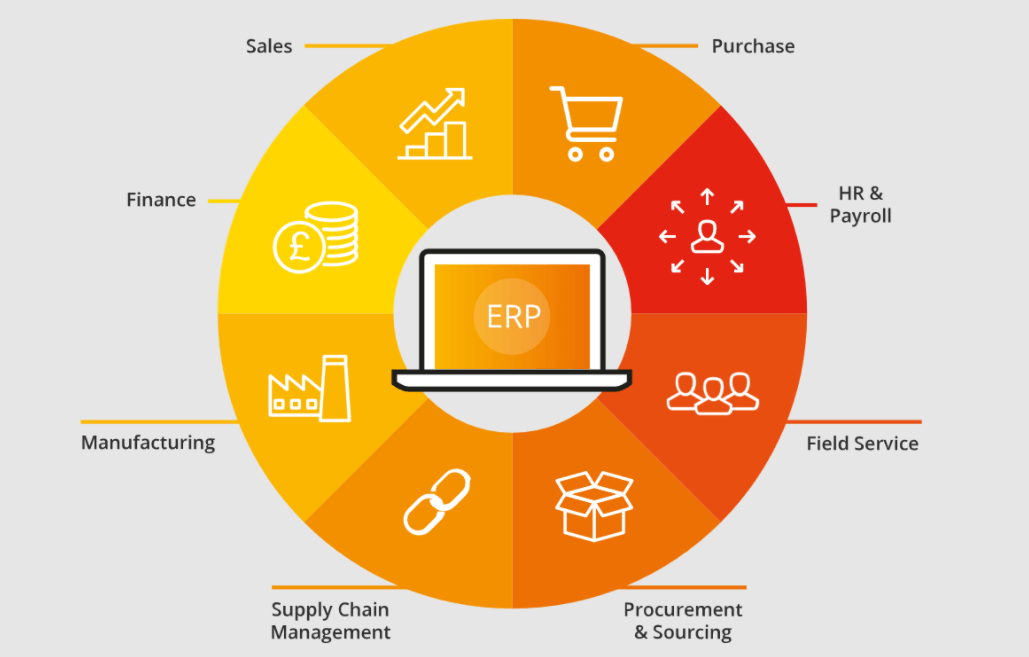
What does ERP stand for?
ERP stands for enterprise resource planning, a comprehensive software system or package for managing day-to-day business operations. Thus, ERP systems are more suitable for large businesses and enterprises. However, for SME retailers, you can combine different utilities from popular open source platforms like Magento ERP to meet your unique needs. This ERP solution includes a set of modules to integrate all core business processes into a single solution. That way, ERP eliminates data duplication and provides data integrity.
To distinguish ERP vs MRP, the primary functions that ERP manages include:
- Accounting
- Project management
- Purchase
- Marketing
- Sales
- Manufacturing
- Distribution and logistics
- Supply chain
ERP systems can automate business operations, synchronize reports on key business metrics, and streamline all business processes.
Advantages of ERP
- Eliminate manual input and only require one-time input
- Offer better data security such as two-step or multi-factor authentication, user access, and data encryption
- Use one database and ensure data integrity
- Manage business time and resources better to save costs and achieve maximum ROI
- Enhance customer satisfaction and service with handy CRM components
Disadvantages of ERP
- Require high implementation and maintenance costs
- Take a long time to get used to the complex system
What is the difference between ERP and MRP? (with ERP vs MRP comparison chart)

The 2 acronyms sound so similar that they’re often confused with each other. However, they’re separate systems and have many differences that affect how retailers use them in their businesses. There are 5 significant factors to differentiate MRP and ERP: solution architecture, integration capabilities, the scope of operation, primary users, and cost. For better visualization, we provide a summary table below.
MRP system | ERP system | |
Solution architecture | A solo software | An integrated software |
Integration capabilities | Require a more complicated process to combine with other software | Connect to other software systems and modules easily |
Scope of operation | Focus only on manufacturing operations | Standardize among many industries and handle all business functions |
Users | Limit users in the production department | Have various users in many different departments |
Cost | Less expensive | More expensive |
How is MRP related to ERP?
MRP is closely related to ERP. MRP is sometimes one of many modules in ERP software. However, the critical differences lie in the range of services they provide. An MRP system focuses on manufacturing processes. An ERP provides a comprehensive range of solutions for accounting, manufacturing, distribution, return merchandise authorization (RMA), customer relationship management (CRM), and human resource. Thus, you should consider the functionality that your retail needs and your budget to choose the best software.
ERP vs MRP: Which should I implement?
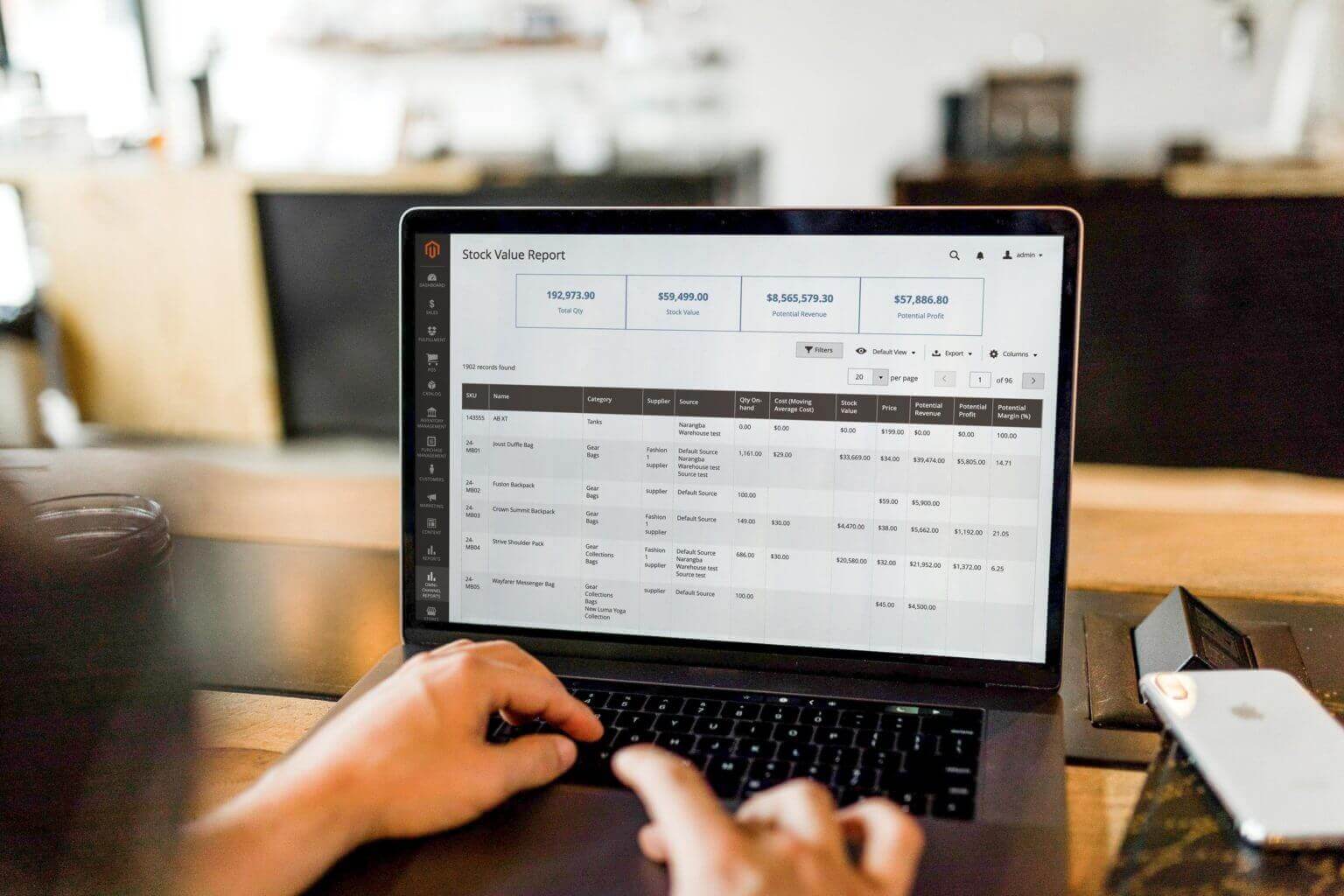
Data is the key for retailers to survive in business in the digital age. Deciding whether to implement MRP or ERP is essential in ensuring that you’re on the right track. If you already understand the main difference between ERP and MRP, here is what you can expect from each system:
- If you’re looking for broad support for your entire supply chain, an ERP system is the best move. This software enables information sharing throughout your business. From there, ERP provides a unified view of how each department is performing. Retailers who need production control and automation for finance, sales, and marketing functions can find an all-in-one ERP solution.
- If you need ultimate production control, choose an MRP system. It fine-tunes your production schedule to ensure it runs as efficiently as possible. Every time your retail store receives an order, the MRP can link that order to your current inventory level. It then calculates the exact amount of time required for each production step. It ensures the completion and delivery of the product on schedule. In addition, MRP can forecast future customer availability and demand.
Is SAP an MRP or ERP?
SAP is the name of an ERP system. It’s the largest and most famous product of the SAP corporation. However, SAP isn’t necessarily an ERP or MRP system but is an ERP implementation provider. SAP ERP has many modules that cover all aspects of business management. You can choose to purchase some features individually or as a package of their all-in-one solution.

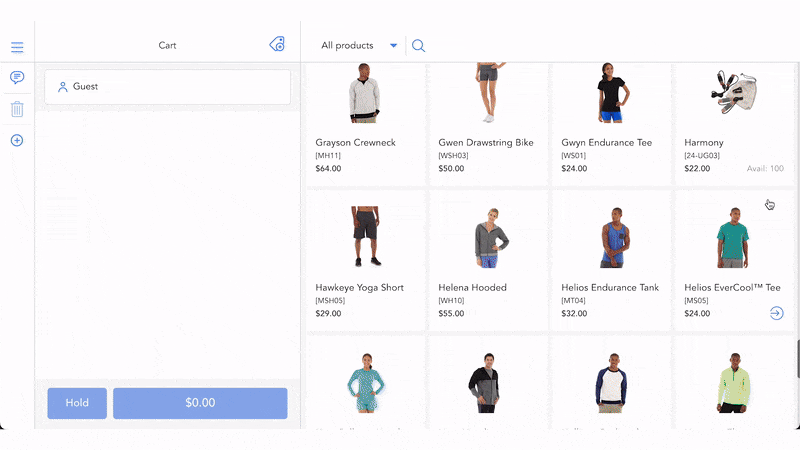



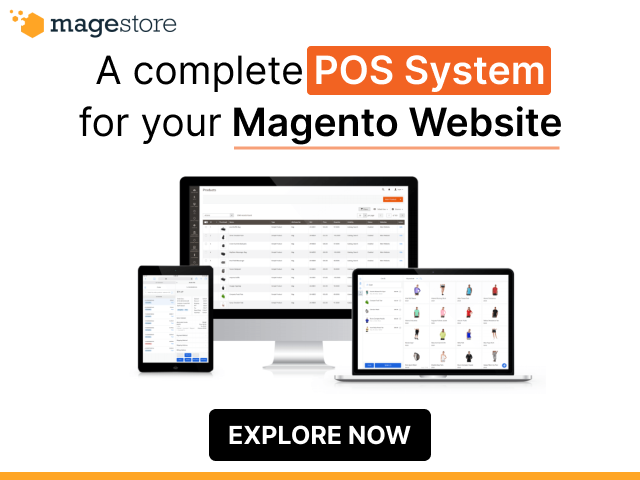







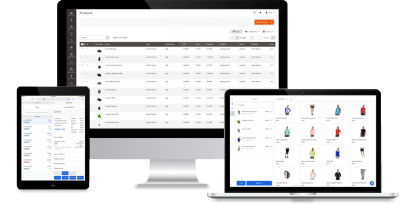

Thanks for discussing the difference between MRP and ERP systems and how retail management software supports a wider and more generalized scope of function. I wonder how these systems work specifically for different industries. I also wonder if it fits our business model.
Thanks for noting that Material Requirements Planning (MRP) and Enterprise Resource Planning (ERP) serve distinct roles in business operations. It is very important to know for business owners.